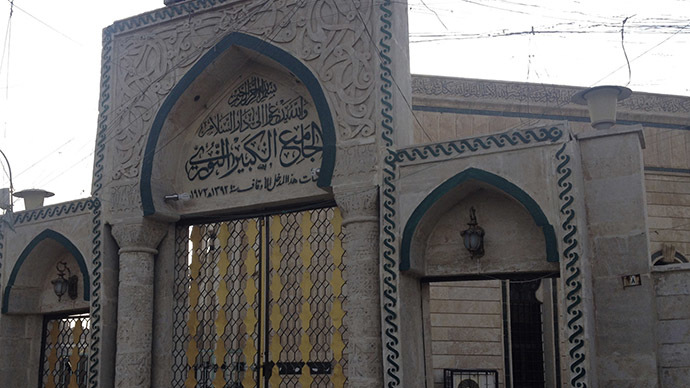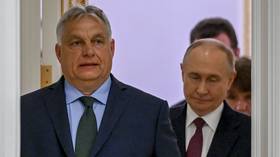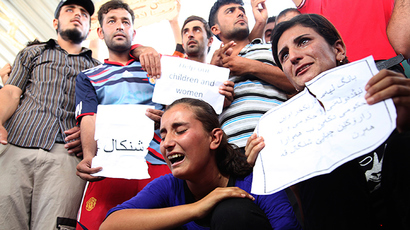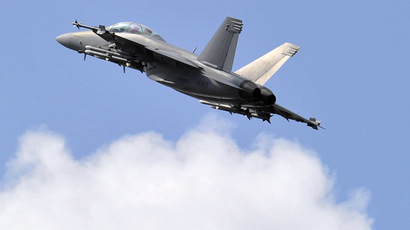Iraq’s Sunnis halt govt talks after 68 killed in gunmen attack on mosque

Gunmen opened fire inside a Sunni mosque in Iraq’s eastern Diyala Province, killing at least 68 people, Reuters said citing medical officials. As Shia militia were blamed for the incident, Sunni politicians withdrew from talks on forming a new government.
According to AP, a suicide bomber broke into the Musab bin Omair Mosque during Friday prayers in the village of Imam Wais and detonated his explosives. He was followed by gunmen, who rushed in and opened fire, an army officer and a police officer at the scene told the agency.
However, Reuters quoted a lawmaker from Diyala as saying that it was "sectarian militias" who entered the mosque and started shooting just as about 150 worshipers were praying.
Earlier an Iraqi security source confirmed the shooting, adding that dozens of bodies had arrived at a hospital in the city of Baquba. Aljazeera reported a higher death toll of 73, and over 50 people wounded in the attack.
There are conflicting reports as to who was behind the attack – Shia militiamen or Islamic State insurgents.
Two influential Sunni politicians – Deputy Prime Minister Saleh
Mutlaq and Parliament Speaker Salim al-Jibouri – announced that
they are pulling out of talks on forming a new government until
the investigation into the attack is completed.
"I confirm we have suspended negotiations with the National
Alliance because of this crime, until the results of the
investigations are announced," Reuters quoted the lawmaker
with Jibouri's bloc, Raad al-Dahlaki, as saying.
Iraqi security forces said they tried to get to the scene after
the attack, but were repelled by bombs planted by the militants,
which allowed the attackers to get away.
The village of Wais is controlled by the Iraqi government, but a
number of neighboring towns and villages have fallen to the
Islamic State militants.
Officials said that Islamic State fighters have been trying to
convince members of two prominent Sunni tribes in the area – the
Oal-Wassi and al-Jabour – to join them, so-far without success.
The attack may have also been in retaliation to a roadside bomb
attack at a recruitment event organized by the Shia militia,
media reports speculated.
Attacks on mosques in Iraq have surged in recent years, with
revenge killings and counter attacks contributing to the worst
bloodshed in the country since the 2006-2007 sectarian civil war.
In July, Shia armed groups executed 15 Sunni Muslims and hung
them from electricity poles in a public square in Baquba.
Meanwhile, Iraqi security forces killed more than 255 Sunni
prisoners in retaliation for the killing of Shias by the Islamic
State.
Sectarian violence will undermine efforts by Iraq’s new moderate
Shia Prime Minister Haider al-Abadi to form a government that can
unite the country against the Islamic State, which controls vast
areas of the north and west of Iraq.
Iraq’s most influential Shiite cleric, grand Ayatollah Ali
al-Sistani, has said the next government should be made up of
people who “care about the country’s future and its
citizens” regardless of their ethnic or religious
background.














